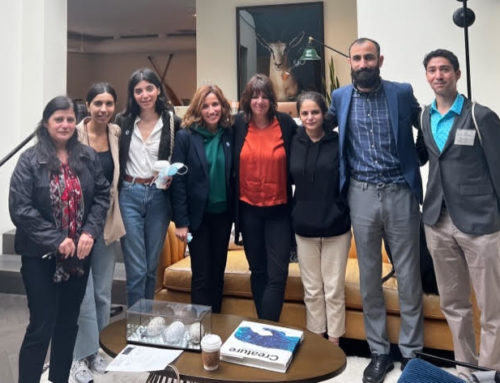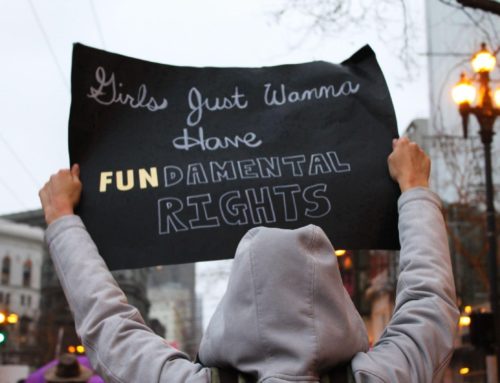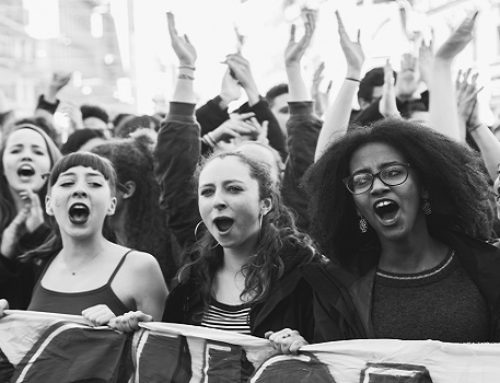EQUITY
By Ilayda Polat
I am a first generation Turkish-American, and I have maneuvered through life in the United States with little to no guidance. Throughout my time here, I struggled with undiagnosed Attention Deficit Hyperactivity Disorder. No matter how hard I tried, I had a lot of difficulty with performing well in school, and always thought that I was simply not “smart enough,” especially under my immigrant parents’ immense pressure to excel. Because of disenfranchisement, which an overwhelming amount of marginalized people face throughout the world, I never really had access to mental health resources, or even considered my need for it. By 25, I finally tried to take matters into my own hands through therapy, which guided me to the path of getting a diagnosis, medication, and accommodations. However, I couldn’t have done this without talking to friends with knowledge on mental health services. Mental health resources have truly changed my life, and I can’t help but think about people, like low-income people, who are even more restricted in accessing resources like these.
The inequity of access to information and resources for things like mental health has deeply impacted how I see myself even today. Even as I’ve gained more success in academics and socioeconomic mobility, I can’t help but feel like an imposter — like I need to constantly be working to compensate for my poor academics in the past. I can’t fathom how much worse I’d feel if I never talked to a therapist or got the academic assistance I needed.
If things were more equitable, perhaps I wouldn’t have struggled with school for so long. When we hear the term “equity,” there’s a common misconception that the word is essentially the same thing as “equality”. There’s actually a very important distinction between the two – they both have two very different outcomes for marginalized people. Equality means everyone in a given group is given the same resources and opportunities (onlinepublichealth.gwu.edu). On the other hand, the term equity considers the differences in circumstances of each individual and allocates resources and opportunities needed for an equal outcome (onlinepublichealth.gwu.edu). Basically, equity addresses imbalances between marginalized people and those who are not. While it seems everyone has equal access to resources, these resources aren’t necessarily equitably distributed in American society.
Our society — when we view it from a global, historical perspective — has typically rewarded demographics like rich, white, heterosexual men. Women, particularly those of color and lower class, have been at a disadvantage throughout history. This is seen when acknowledging pay gaps between men and women, gender-based harassment, positions of power, and political decisions. When societies reward certain demographics over others for so long, it might even seem accidental or unintentional. However, this reward system oftentimes results in outcomes that are actually rooted in discrimination and racism. But how do we – women, people of color, immigrants – resist these systems that have been historically embedded in our society?
Equity.
A vast majority of people, in some shape or form, want the same thing. We all want the ability to prosper and participate in society – we want access to social mobility, economic mobility, health and education for ourselves and those we love. However, given the wide range of circumstances that have created imbalances among marginalized groups compared to their white, rich male counterparts, we don’t have the same access to resources and opportunities. That’s why it should come as no surprise that far too often, women, particularly BIPOC, suffer from imposter syndrome.
With that said — how can we provide more equitable access and opportunity to marginalized groups? The answer lies in the cultivation of community.
While it’s up to the government to determine the laws that promote equity, providing more access and opportunity exists within powerful entities like nonprofits, grassroots movements and educational programs. They can do this in a number of ways. They can uplift the voices of women and women of color, so that their needs are more likely heard. They can give women that are BIPOC the confidence to navigate the world, since society as it is may make them wrongly feel they are less valuable. They can subsequently empower women and BIPOC leadership, which is so vital to structural change and ultimately, a more equitable society.
If you’re like me, a woman who is navigating society with little guidance, I want to shamelessly plug something for you. On November 6th, 2021, at 2 p.m, Women’s Global Leadership Initiative and Comerica are hosting “Coming Back Stronger,” a free virtual leadership workshop developed by women for women. It includes overcoming imposter syndrome, guidance on establishing identity, and some important information on financial literacy. It’s events like these that cultivate community and help bring down the boundaries around our access to resources and opportunities.
Ilayda Polat






